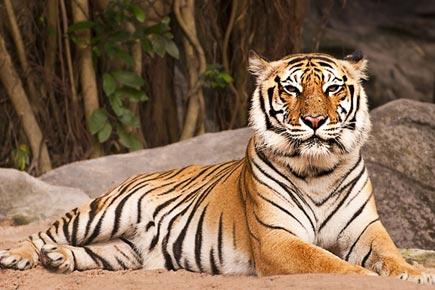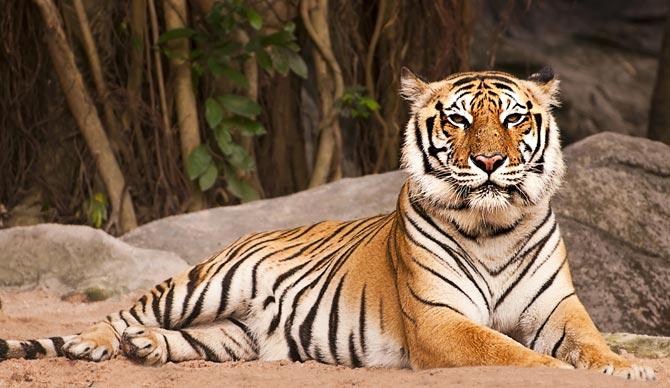Many of the world's biggest and iconic animals such as the Bengal tiger could be extinct by the end of the century if drastic conservation measures are not taken, a new study has warned

Bengal tiger
New York: Many of the world's biggest and iconic animals such as the Bengal tiger could be extinct by the end of the century if drastic conservation measures are not taken, a new study has warned.
ADVERTISEMENT

A Bengal tiger in the wild
The threat is particularly dire in sub-Saharan Africa and Southeast Asia, where much of the world's biodiversity resides, researchers said.
"The rapid loss of biodiversity and megafauna, in particular, is an issue that is right up there with, and perhaps even more pressing than, climate change," said Peter Lindsey, lion programme policy initiative coordinator at conservation organisation Panthera.
Researchers catalogued the species in peril across six continents - all of the species across the globe that the International Union for Conservation of Nature lists as threatened with extinction.
When they looked at the prognosis for each of those species, the forecast was dire, 'Live Science' reported.
About 59 per cent of the world's big carnivore species (those heavier than 15 kilogrammes), such as Bengal tigers, and 60 per cent of big herbivore species could disappear from the Earth if critical steps are not taken, researchers found.
"There is a risk that many of the world's most iconic species may not survive to the 22nd century," researchers said.
"It's time to really think about conserving them, because declines in their numbers and habitats are happening quickly," said lead author William Ripple, an ecologist at Oregon State University in the US.
The study was published in the journal BioScience.
 Subscribe today by clicking the link and stay updated with the latest news!" Click here!
Subscribe today by clicking the link and stay updated with the latest news!" Click here!






